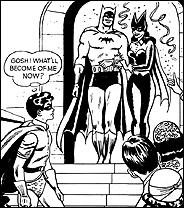Kaleidoscope
Nicholas Bourbouhakis: His club is your club
 PHOTO: Owen Egan
PHOTO: Owen Egan |
|
As soft jazz wafts in the background, Nicholas Bourbouhakis settles into a leather chair, his guest admiring the rich wood on the surrounding walls. In the midst of an unappealing February, it's a cozy little oasis for a brandy and a chat -- which is exactly the idea.
Smartly dressed in the dark tones that Regis Philbin popularized on Who Wants to Be a Millionaire?, Bourbouhakis, the Faculty Club's general manager, can take pleasure in his establishment's current fortunes.
Extensive renovations have highlighted the building's original beauty, business is on the upswing and the books are more than balanced.
The picture was considerably gloomier when Bourbouhakis arrived. The place was still in shock in the aftermath of the tragic death of his predecessor in an accident. The University was rethinking its financial support of the place. And business was on the wane.
Three years ago, the African-born veteran of the hotel and services sector was the director of operations for the Montreal Convention Centre when McGill offered him the Faculty Club job.
"In terms of square footage, there was nothing to compare" between the club and the massive centre. "But in terms of the work that needed to be done, in terms of the challenges to be faced, this was a big one."
When Bourbouhakis took over, he says he had three sets of related problems. The first was immediately apparent.
"The building was in neglect." He hastens to add he understands the circumstances; McGill's physical plant as a whole didn't receive the attention it needed in the cash-strapped '90s.
Still, a faculty club is only as inviting as the building that houses it. So Bourbouhakis okayed major renovations.
A risky move given problem number two: the University's decision to run the Faculty Club on a cost recovery basis. For Bourbouhakis and his staff, this meant "we had to do or die. If we didn't find our own means for survival, we would have to close the doors."
The third problem was that the Faculty Club was no longer perceived by many professors as the place on campus for casual get-togethers and academic events.
Bourbouhakis gambled that the renovations and a renewed emphasis on service would draw customers back and put the club on a better financial footing. It seems to have worked. The budget is in the black and the number of McGill events held at the club is climbing.
The way Bourbouhakis sees it, so long as he and his staff do their jobs well, they can't fail.
"This might sound stupid, but I have no competition," Bourbouhakis says, well aware of the dozens of restaurants and hotels that are only a stone's throw away from campus.
"Restaurants are not my competition. Hotels are not my competition." The Faculty Club stands as an absolutely unique entity in his eyes.
"Where else can the professors of McGill get together? It's their only chance to meet colleagues from across the University. Where else can the University's events be hosted?"
Bourbouhakis reasons that "we have a captive market," if everyone at the club performs their part.
Attentive service and pleasant surroundings are key, says Bourbouhakis. "People remember bad experiences. That does a lot more damage to you than the benefit you receive from someone having a particularly good experience."
While winning back the loyalty of McGill professors has been job one, Bourbouhakis isn't putting all his eggs into one basket.
"The biggest challenge was to change the culture of the staff and the administration here. We had to become much more entrepreneurial." For instance, corporate events and corporate members have been wooed more aggressively and with success.
Pathology professor Edith Zorychta chairs the McGill Association of University Teachers' committee on the Faculty Club. She credits Bourbouhakis for his extensive connections, financial acumen and attention to detail. She recently attended one academic event involving a speaker from Harvard and a series of poster presentations and she was impressed by the way the arrangements were handled. "He has been excellent."
Asked about his favourite part of the job, Bourbouhakis mulls it over.
"One of the things that I really enjoy about this place is the conversation," Bourbouhakis says. Listening in as a wide range of experts debate the issues of the day is a source of pleasure. "I'm always learning something."
The way things are going at the Faculty Club, there will be no shortage of quality conversation anytime soon.
 |
||||
|
It's relatively easy to set up a lab and find someone competent to carry out the procedures. Regrettably, we will probably wake up one day to the news that someone, somewhere, has used somatic-nuclear-transfer technology to produce a human clone. |
||||
Of mouse pads and men
 Computers not for women?
Computers not for women? |
|
According to a recent survey by the University of California, Los Angeles, women entering college are far less confident about their computer skills than their male peers, even though they use computers almost as often.
The annual UCLA survey polled over 400,000 students at 717 colleges and universities across the U.S.
First-year college women and men reported almost equal computer use, but female frosh were only half as likely as men to rate their computer skills highly. Only 23.2 per cent of women, compared with 46.4 per cent of men, described their computer skills as "above average" or "within the top 10 per cent" of people their age.
A paltry 1.8 per cent of women, compared to 9.3 per cent of the men surveyed, said they planned to enter computer programming as a career -- the largest gap in the survey's history.
"This is an area where the gender gap has done nothing but grow larger," said Linda Sax, the survey's director.
"Women are losing out on many opportunities in fields that can be very lucrative," Sax said.
The gender gap in computing confidence also exists among the women who would appear to be the most secure in their technical skills: computer science majors.
According to researchers at the Carnegie Mellon Project on Gender and Computer Science, who analyzed four years of interviews with male and female computer science majors, female students tend to underestimate their abilities far more than male students.
Even women who are exceptionally good at computer science at the undergraduate level often have their confidence shaken because they are surrounded by men who have had more hands-on computing experience.
Researchers found that while 38 per cent of first-year men had significant self-initiated, out-of-school programming experience, only 10 per cent of women had such experience.
 |
||||
|
I would urge physicians to dig back in their hearts and find [that passion] again, because it's there. Sometimes under all the everyday little hassles and worries we forget the amazing privilege it is for us to be physicians. |
||||
Is that a batarang or are you just happy to see me?
 |
|
For decades, there have been whispers about the nature of the relationship between Batman and Robin.
As Burt Ward, the actor who played the boy wonder in the Batman TV show, once noted, "A mature man, unmarried and rarely seen in the company of women, takes a naive teenage boy under his wing... They share many secrets and spend long hours alone in remote areas... Holy homophobia!"
Even though Batman makes googly eyes at Catwoman and Robin got lucky with a buxom alien superhero named Starfire, the rumours persist.
This sort of speculation seems to make the folks at DC Comics, Batman's publisher, more than a little uncomfortable.
When American scholar Chris York recently asked DC for permission to use some Batman art to accompany his paper, "All in the Family: Homophobia and Batman Comics in the 1950s," DC said no.
York's article examines the stir caused by psychiatrist Fredric Wertham in 1954 when he accused the Batman comics of "homoeroticism." York writes that Batman scribes responded by providing Batman with more female companions, such as Batgirl, Batwoman and numerous girlfriends.
In 1993, when the New Republic ran a satiric cover cartoon in which Batman and Robin exchange terms of endearment, DC asked for, and received, an apology.
University of Calgary professor Bart Beaty, co-editor of the forthcoming International Encyclopedia of Comics, believes that York's article was "clearly" a victim of "homophobia." He adds that the difficulty of securing copyright permission is "absolutely the most serious problem facing comic-book scholarship.
"Writing about comics by only quoting the written text," says Beaty, a recent McGill PhD graduate, "is like writing about Shakespeare by only quoting the stage directions."
Source: Lingua Franca

